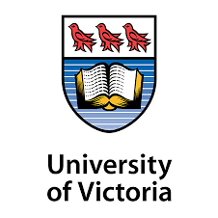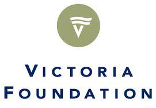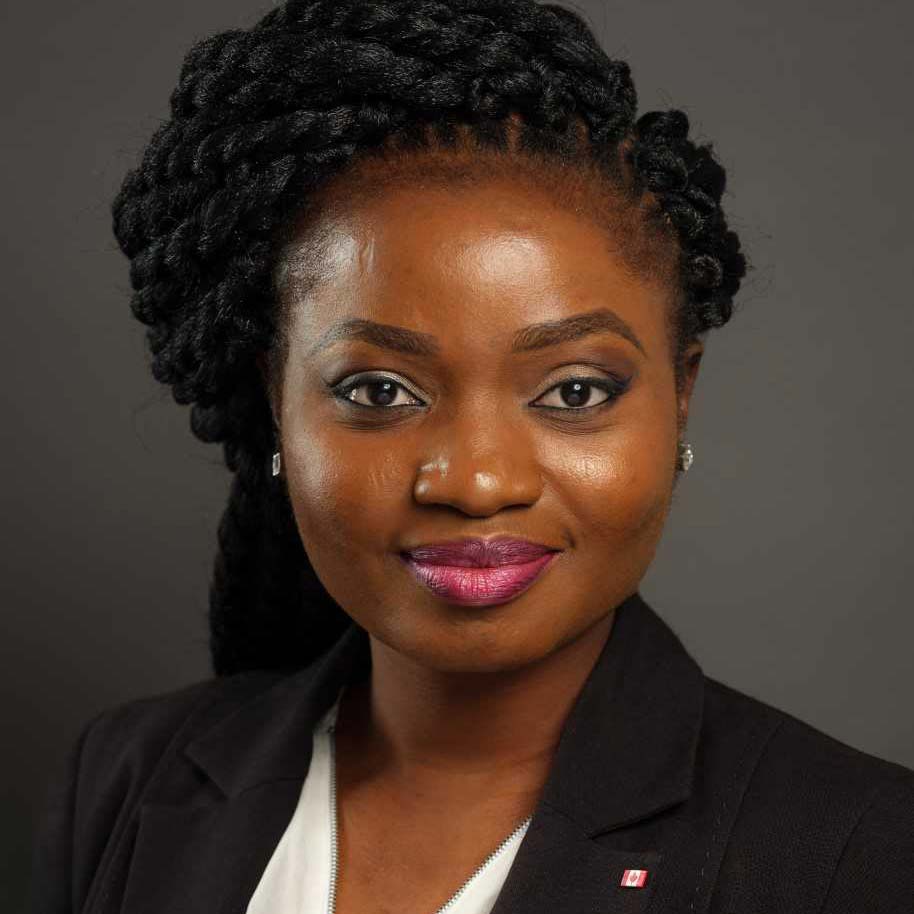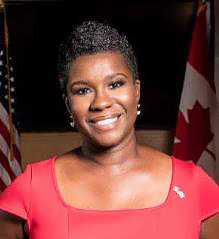WEBINAR
Systemic Racism & Inequality in the Middle of a Global Pandemic
WEBINAR
Systemic Racism & Inequality in the Middle of a Global Pandemic
Date: June 25, 2020
Many countries around the world have found a strong call to action, a quest for change and a clarion call for solidarity as new pathways emerge from the shared struggles in the face of racial discrimination, police brutality and race-based violence around the world. 75% of Americans believe racial and ethnic discrimination is a big problem in the US. The disproportionate impact of the coronavirus pandemic on African Americans also points to underlying socio-economic issues within the country- 23% of the reported COVID cases are within Black communities. The coronavirus pandemic mirrored, yet again, the wide socio-economic berth and inequalities that divide people, communities and racial groups.
From speculations around de-funding the police to inquiries around Black Lives Matter protests around the world, the issue of racial inequality cannot be placed on the back burner; it is a matter so urgent and so poignant, it calls for systemic reforms, policy changes, personal leadership and ethical reflections in shaping new approaches. Existing socio-economic gaps have become even wider in the face of a global pandemic with riveting effects that has left the world seeking answers and looking for solutions, even from the most unusual places.
In Canada, Black Indigenous and People of Colour communities are seeking new pathways, in solidarity with White counterparts, to stem the tide of institutional and systemic racism. Long-standing issues of economic inequalities also come to bear in perpetuating cycles of inequality in the country. The average income of Black Canadians is about 25% less than those of Canadians who are not racial minorities. The median income for Indigenous peoples is about 30% lower than the rest of Canada. Indigenous peoples are some of the poorest in Canada, with many still reeling from the historical impact and legacy of colonialism.
In this webinar, we will explore learnings and emerging pathways and establish a clear call to action in strengthening relationships within and beyond Canada. We will attempt the following questions:
- What are the common struggles and shared responsibilities within Black and Indigenous communities, and new pathways for building a new future? How has the coronavirus pandemic further widened the gaps that existed?
- Why (and in what specific ways) does systemic and institutional racism persist in Canada, USA and other parts of the world, in spite of evidence that shows the need for collaboration, diversity and inclusion in building an equitable future?
- What is the role of business, government and civil society in strengthening relationships with minorities and racialized groups in Canada? How do we do business differently, by building a shared future with communities?
Hosts


Founding Partners


Supported By:


Other Webinars
Moderator

Ruth Mojeed
Victoria Forum Manager
Ruth brings extensive lived experience and grounded expertise to her work in equity, diversity and inclusion across public and private sectors. Her research and solutions design focuses on an intersectional and inter-generational approach to addressing complex issues of decolonization, race & gender equity. She is the founder of The Inclusion Project, a social innovation network of organizations and individuals engaged in equity, diversity and inclusion initiatives.
Ruth is indigenous to the Yoruba tribe from western Nigeria. She migrated to Canada in 2015 to pursue a master’s degree in intercultural & international communication at Royal Roads University. She holds certificates in community organizing & leadership from Harvard University and community-based participatory research from the University of Victoria.
She is a fellow with the Institute for Canadian Citizenship, a lead researcher and mentor with the UNESCO Knowledge 4 Change (K4C) global consortium. She sits on the advisory of Simon Fraser University’s Community Summit; the Community Social Planning Council’s advisory on Financial Inclusion in the Green Economy. She is the co-chair of the regional committee on inclusive economic recovery (post-covid). She is a director on the national board of the Canadian International Council.
Panelists

Nadia Theodore
Consul General of Canada in Atlanta
Nadia Theodore joined the Canadian civil service in 2000. She has made her career in the Trade Agreement and Negotiations Branch of Global Affairs, holding leadership positions on several recent and major trade initiatives of Global Affairs Canada, including serving as one of the two Deputy Chief Negotiators for the Comprehensive and Progressive Agreement for Trans-Pacific Partnership and as the Executive Director of Canada’s Secretariat for the Canada-European Union Comprehensive Economic and Trade Agreement.
Consul General Theodore previously served at Canada’s Permanent Mission to the World Trade Organization and at Canada’s Permanent Mission to the United Nations, in Geneva Switzerland. Directly prior to being named Consul General for the US Southeast, in August 2017, she served in Ottawa as Chief of Staff and Executive Director to Canada’s Deputy Minister for International Trade.
With over 10 years of trade policy experience, Ms. Theodore’s appointment came as Canada, Mexico and the United States launched negotiations to modernize the North American Free Trade Agreement (NAFTA). As part of Canada’s international trade negotiating team, Ms. Theodore built a reputation for forging strong partnerships with government and business leaders and managing complex, priority trade initiatives.
Ms. Theodore was born and raised in Ottawa, Ontario. She holds a Bachelor of Laws from the University of London and an M.A. in Political Science from Carleton University.

Senator Murray Sinclair
Senate of Canada
Senator Sinclair served the justice system in Manitoba for over 25 years. He was the first Aboriginal Judge appointed in Manitoba and Canada’s second. He served as Co-Chair of the Aboriginal Justice Inquiry in Manitoba and as Chief Commissioner of the Truth and Reconciliation Commission (TRC). As head of the TRC, he participated in hundreds of hearings across Canada, culminating in the issuance of the TRC’s report in 2015. He also oversaw an active multi-million dollar fundraising program to support various TRC events and activities, and to allow survivors to travel to attend TRC events.
Senator Sinclair has been invited to speak throughout Canada, the United States and internationally, including the Cambridge Lectures for members of the Judiciary of various Commonwealth Courts in England. He served as an adjunct professor of law at the University of Manitoba. He was very active within his profession and his community and has won numerous awards, including the National Aboriginal Achievement Award, the Manitoba Bar Association’s Equality Award (2001) and its Distinguished Service Award (2016) and has received Honorary Doctorates from 8 Canadian universities. Senator Sinclair was appointed to the Senate on April 2, 2016.
